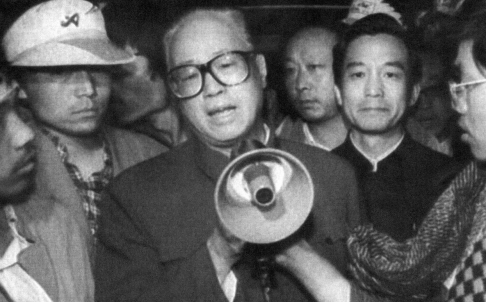Mourners gathered at the Beijing home of former Communist Party General Secretary Zhao Ziyang to mark the tenth anniversary of his death. After being purged from the Party for expressing sympathy with the 1989 protesters, Zhao lived out his life under house arrest in his courtyard home until his death in 2005. While authorities allowed the gathering to proceed, it was monitored by a heavy security presence. From the BBC:
The mourners took flowers and bowed low before photographs of Mr Zhao, in what appeared to be an impromptu ceremony.
Police officers were stationed outside the compound. They allowed mourners to enter the house to pay their respects, but stopped journalists from going in.
Mr Zhao’s former adviser, Bao Tong, said that China’s current leaders did not know how to deal with Mr Zhao’s legacy.
“I think that the government is very conflicted about its opinion of Zhao Ziyang,” Mr Bao told Reuters news agency. [Source]
Zhao’s family, however, has been very clear in their assessment of his role in history, as Verna Yu reports for the South China Morning Post:
His youngest son Zhao Wujun said he wants the official verdict on his father to be remembered as his family continued to fight for the right to bury his ashes. “‘Supporting unrest and splitting the party’ – I want this engraved on his tombstone,” he said, when asked whether he wanted the official verdict reversed. “To our family, this is no shame – it’s our glory.”
Zhao Ziyang’s opposition to the armed attack on student demonstrators made him a symbol of conscience among many ordinary Chinese. But his name had become taboo among the authorities and is censored from official media to this day.
His ashes are still kept at his former courtyard home in Beijing as no agreement has been reached with the government on a burial site. “This weighs on our hearts still,” his son said. “We want him buried properly.”
The party offered to bury his ashes at the Babaoshan Revolutionary Cemetery after he died, but the family wanted the former party secretary to be buried privately in a public cemetery. [Source]
Read more about the 1989 student movement and about Zhao Ziyang, via CDT.








